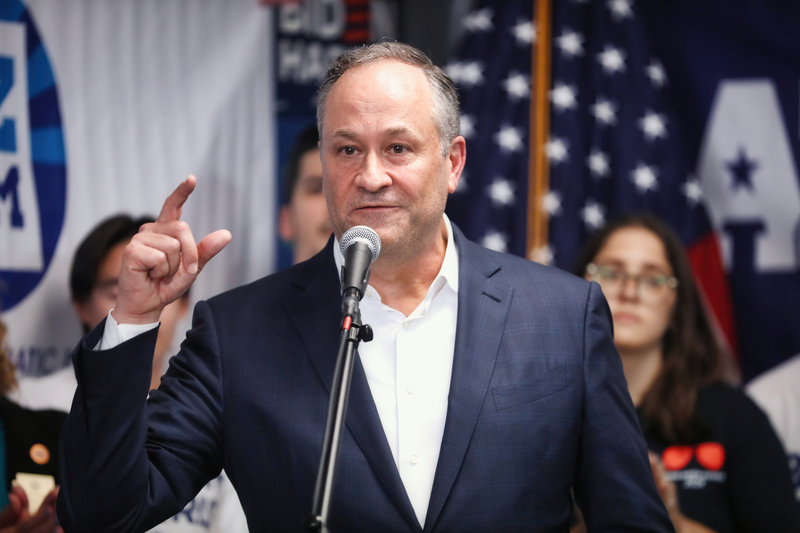OLD BRIDGE, NJ—It’s no secret that New Jersey native Second Gentleman Doug Emhoff’s Jewish faith is causing some problems for his wife Kamala Harris when it comes to wrangling in far-left Democrat voters. While Emhoff is using his New Jersey and faith-based connections to raise millions of dollars for his wife, the anti-Semitic faction of Democratic party radicals protesting on college campuses is posing a challenge for Harris.
Harris is walking a tightrope when it comes to expressing her support for the Jewish community without angering the radical pro-Palestinian faction of her party calling for the destruction of the Israeli state.
Doug Emhoff, the first Jewish spouse of a U.S. vice president, has made combating antisemitism a central focus of his role. His recent comments condemning anti-Jewish demonstrations on college campuses, particularly in the wake of the Israel-Hamas war, have drawn both praise and criticism. While his stance resonates with many Jewish voters and those concerned about rising antisemitism, it also risks complicating his wife Kamala Harris’s position in the 2024 election, especially among the more progressive wing of the Democratic Party.
Since the onset of the Israel-Hamas war, protests have erupted across the U.S., especially on college campuses, with many expressing support for Palestinians. Some protests have included antisemitic rhetoric, which Emhoff has firmly condemned. He has emphasized that while he supports free speech and the right to protest, calls for genocide and violence against Jews are “unacceptable” and must be denounced. His involvement in the U.S. National Strategy to Counter Antisemitism, launched in May 2023, underscores his commitment to addressing these issues.
While Emhoff’s position aligns with mainstream Democratic views on protecting marginalized communities, it places Harris in a tricky spot. The Democratic Party is increasingly divided on the issue of Israel, with many progressives criticizing the Israeli government’s actions and calling for more vocal support of Palestinian rights. This faction includes key figures within the party who are influential with younger, more diverse voters—many of whom are also active on college campuses.
Emhoff’s stance on antisemitism, while grounded in his personal experience as a Jewish American, could alienate some progressives who feel the U.S. government is too uncritical of Israel’s policies.
On the other hand, his voice might help reassure more centrist and older Jewish voters who are concerned about rising antisemitism in America. In fact, about two-thirds of American Jews identify as Democrats, and many within this group have been deeply disturbed by the surge in antisemitic incidents across the country.
Harris’s challenge, moving into 2024, is to walk a fine line. She needs to continue advocating for free speech and civil rights while also addressing the concerns of the Jewish community. Her own statements on the Israel-Hamas conflict have emphasized Israel’s right to defend itself, but she has also expressed concern about the large number of Palestinian civilian casualties. This nuanced position attempts to appeal to both sides of the debate, but it risks leaving her open to criticism from both pro-Israel voters and pro-Palestinian activists.
Emhoff, meanwhile, is expected to remain a key figure in her campaign, helping to rally Jewish donors and voters. His efforts to combat antisemitism will likely remain a major part of his public role. However, if he continues to speak out forcefully against antisemitism in relation to the Israel-Palestine conflict, it could fuel further debate and tension within the Democratic Party, potentially complicating Harris’s path to the White House.
Ultimately, Emhoff’s position highlights a broader issue: the growing divide within the Democratic Party over Israel and the difficulty of balancing the concerns of different voter groups. As the 2024 election approaches, Harris will need to carefully navigate these complex dynamics if she hopes to maintain the support of both Jewish voters and the progressive base.

